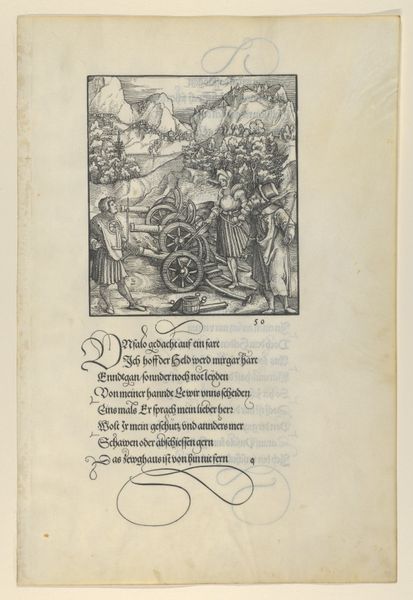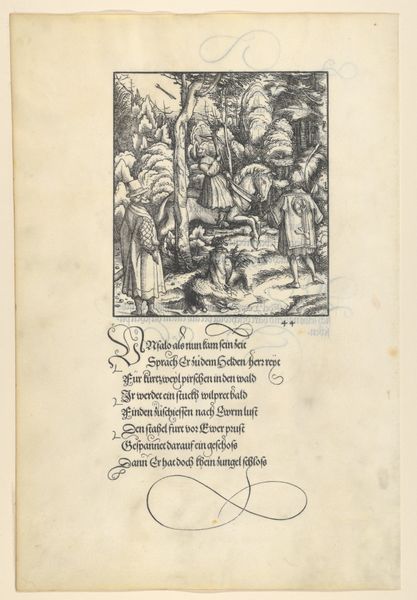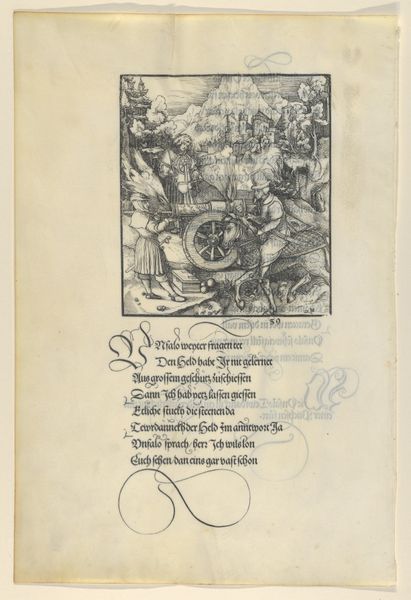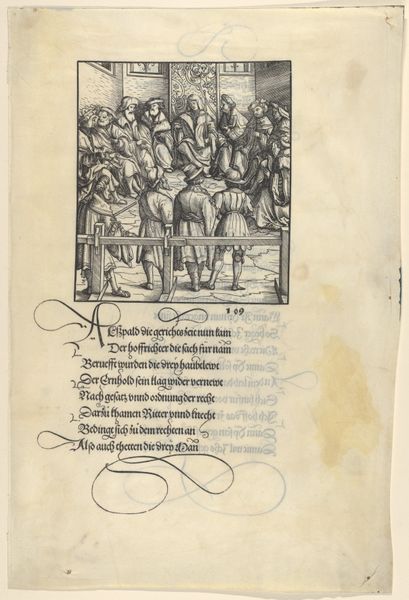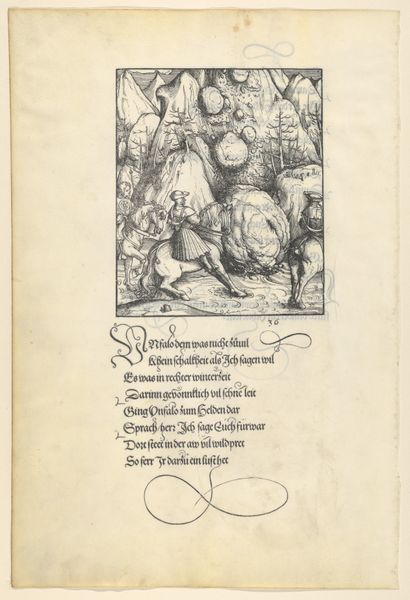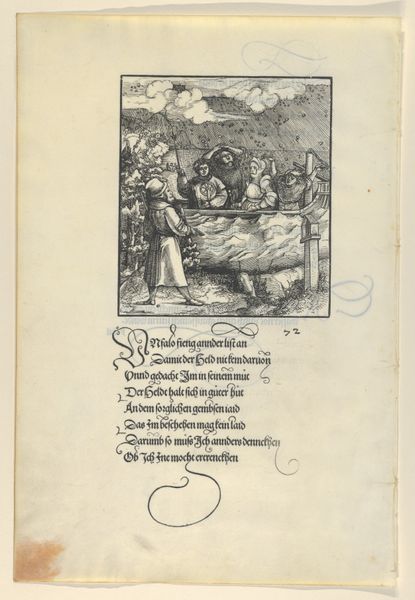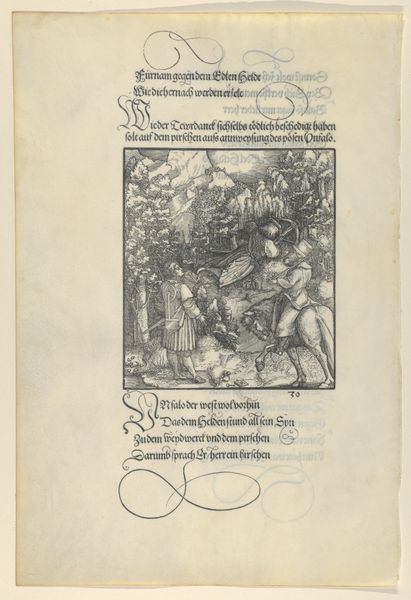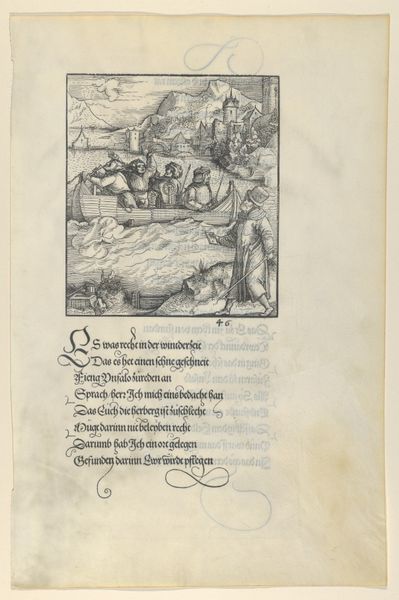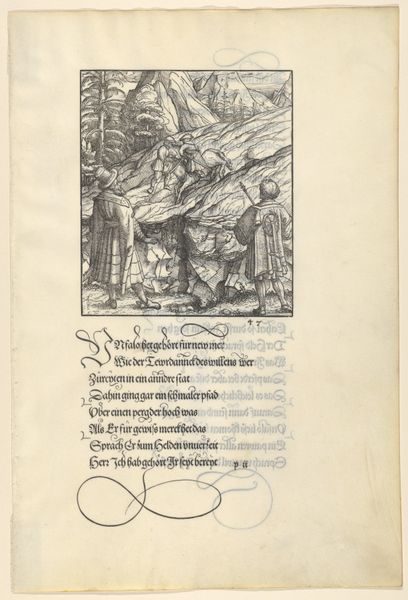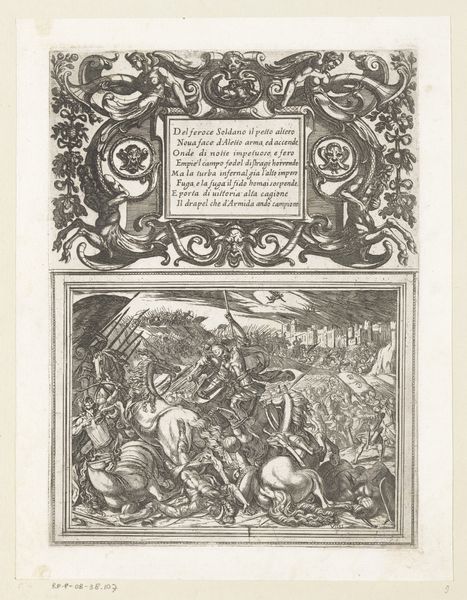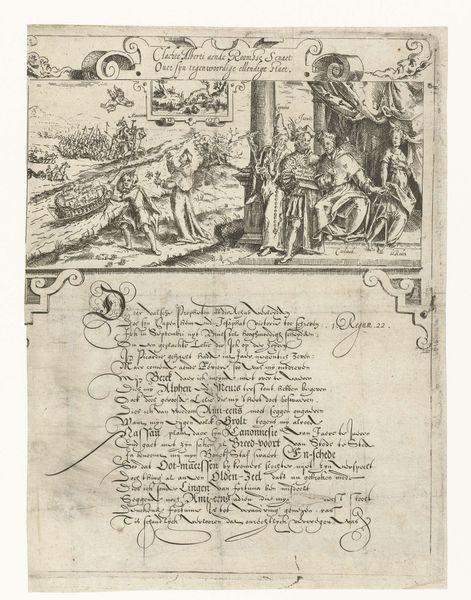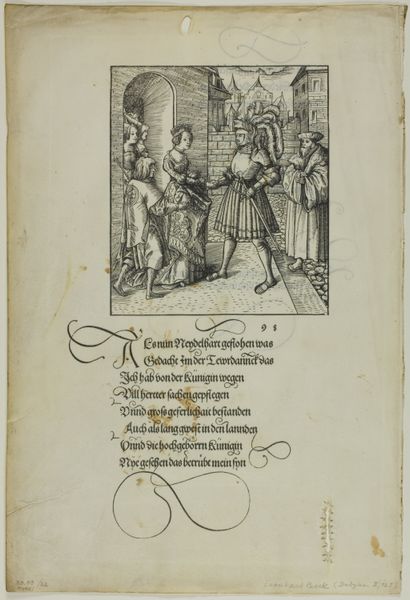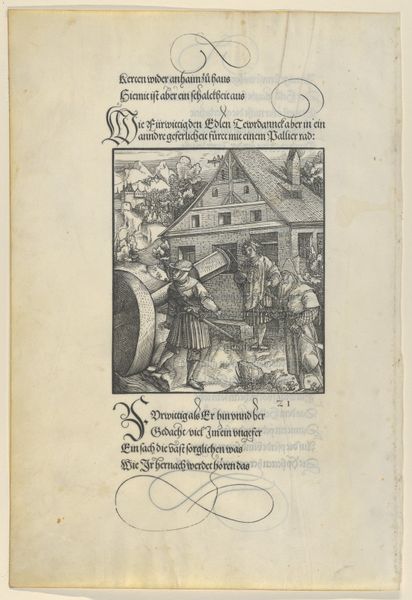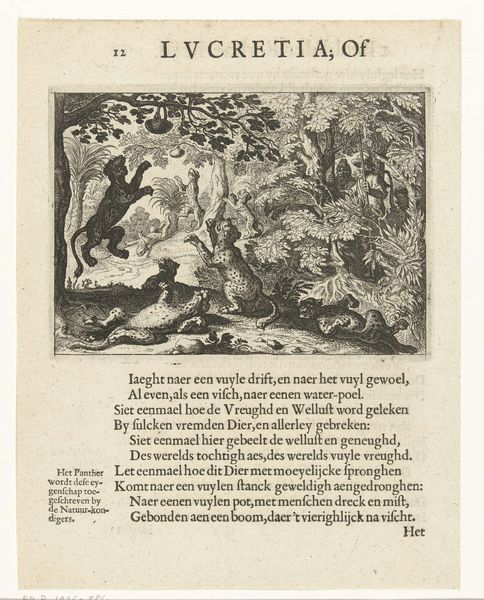
Unfalo Causing a Fall of Theuerdanck's Horse, from Theuerdanck 1517
0:00
0:00
drawing, print, woodcut, engraving
#
drawing
#
narrative-art
# print
#
landscape
#
figuration
#
woodcut
#
horse
#
history-painting
#
northern-renaissance
#
engraving
Dimensions: Sheet: 14 1/2 × 9 7/8 in. (36.8 × 25.1 cm)
Copyright: Public Domain
This is Hans Schäufelein's woodcut, "Unfalo Causing a Fall of Theuerdanck's Horse," made in Germany around 1517. It's from a series of prints commissioned by Emperor Maximilian I for the "Theuerdanck," a poetic retelling of his own chivalrous adventures. Let's think about how the image creates meaning. We see a dramatic scene: a knight, presumably Theuerdanck, unhorsed by the villainous Unfalo. The setting is a rugged landscape, complete with a castle in the distance. This imagery is drawn from the ideals of chivalry and courtly love, which were central to Maximilian's self-presentation as a noble ruler. The "Theuerdanck" project was an effort to solidify Maximilian's legacy through the relatively new technology of print. By controlling the production and distribution of these images and texts, the Emperor sought to shape his public image and reinforce his authority. To fully understand the image, we might consult archival records, court documents, and other printed materials from the period. The meaning of art is contingent on its historical and institutional context.
Comments
No comments
Be the first to comment and join the conversation on the ultimate creative platform.
